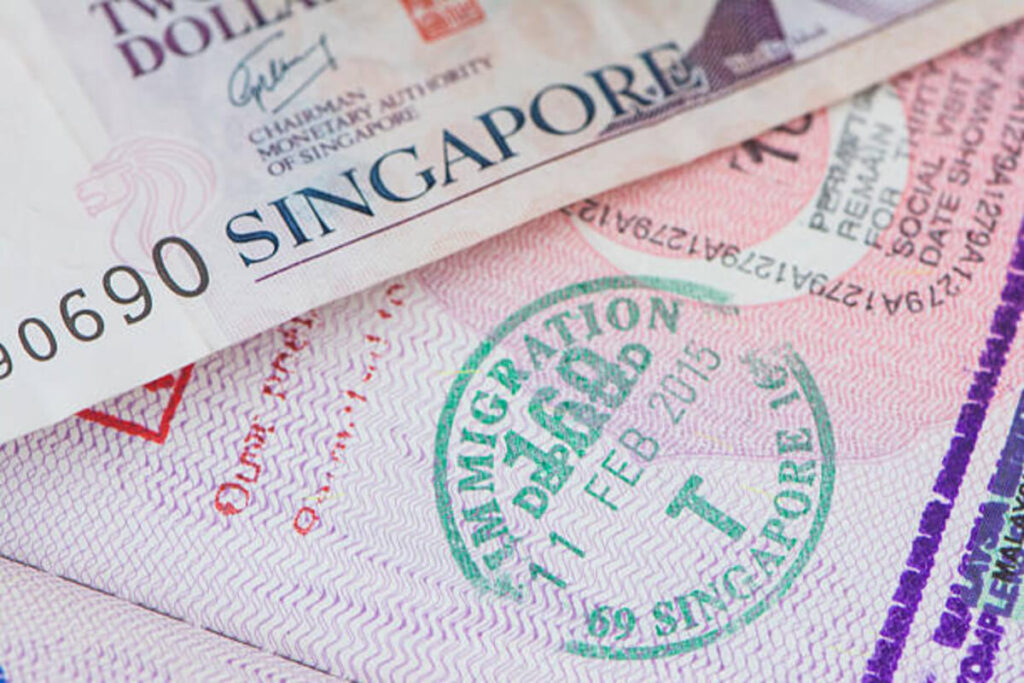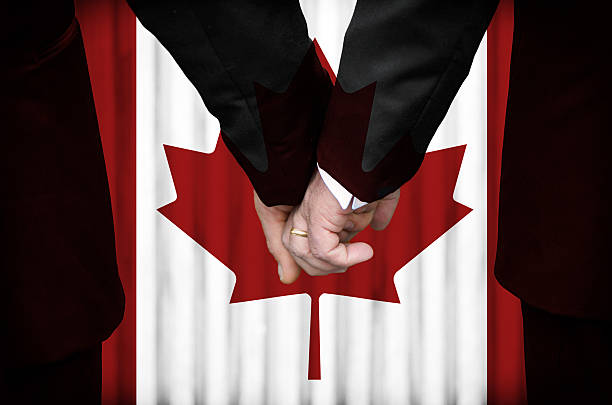Moving to a new country brings excitement, fresh opportunities, and the promise of a better life. But it also comes with unexpected costs, income gaps, and financial risks that can quickly turn your dream into stress. That’s why building a financial safety net before moving abroad is one of the smartest steps you can take.
Advertisement
It helps you stay prepared, stable, and secure while adjusting to life in a new environment. Whether you’re relocating for work, study, or adventure, having your finances in order means fewer surprises and more freedom to enjoy the experience. This guide shows you how to do it right.
Start With a Cash Buffer
Before moving abroad, build a strong cash buffer that can cover at least 6 to 12 months of your expected living expenses. This money gives you peace of mind if things don’t go as planned. You may face job delays, emergencies, or unexpected costs when settling in.

Keep this fund in a safe, easy-to-access place like a high-yield savings account. Avoid locking it in long-term investments. This buffer isn’t for travel or daily expenses it’s for stability and survival. Having this safety net lets you focus on your move with confidence, not stress.
- Save 6–12 Months of Living Expenses
Calculate your expected cost of living in your new country and multiply by 6 to 12. This buffer protects you if income slows or emergencies happen. - Keep it Liquid
Put this money in a high-yield savings account or money market fund that you can access anytime without penalties or delays.
Read: How to Handle Rejections and Reapply for a Visa Successfully
Pay Off High-Interest Debt
Carrying high-interest debt like credit cards or personal loans can become a big burden when you’re living abroad. It reduces your flexibility and eats into your budget. Try to clear these debts before your move. If paying off isn’t possible yet, look into consolidating them into a loan with lower interest rates to save money.
Paying down debt also improves your credit and gives you more control over your financial future. When you’re abroad, access to credit support may be limited, so reducing what you owe before leaving helps you stay financially stable in your new location.
- Eliminate Credit Card Balances First
Carrying debt abroad can hurt your budget. Pay off any high-interest credit cards or personal loans before your move. - Refinance or Consolidate Smartly
If you can’t pay off everything, consider consolidating debt into a lower-interest loan.
Secure International Health Insurance
Health care abroad can be expensive and unpredictable. Before moving, buy a good international health insurance plan that covers doctor visits, hospital stays, emergencies, and medical transport. You may not qualify for public healthcare in your new country right away, or at all.
Without insurance, a single hospital visit could drain your savings. Make sure your plan starts before or the day you arrive. Check what’s included and excluded so you’re not caught off guard. Choose a trusted provider with 24/7 customer support and a simple claim process. Protecting your health is a key part of financial safety.
- Buy a Plan That Covers You Globally
Health emergencies can wipe out savings. Choose a reliable health insurance plan that works in your destination country and covers both local and emergency care. - Avoid Gaps in Coverage
Make sure coverage begins before or the moment you land. Read the fine print for exclusions.
PBuild an Emergency Fund in Stable Currency
Your emergency fund should protect you, no matter where you are. To do that, hold part of it in a strong, stable currency like the US dollar or euro. This shields your savings from sudden drops in your new country’s currency value. Currency swings happen often and can impact how much your money is really worth.
Store these funds in a reliable multi-currency account that lets you switch or send money as needed. Keep it accessible but separate from daily spending. This type of emergency fund gives you an extra layer of financial protection in unstable times.
- Hold Part of Your Emergency Fund in USD or EUR
This protects you from currency devaluation if your destination country’s currency drops in value. - Use a Multi-Currency Account
Open an account (like Wise or Revolut) that lets you hold and switch between currencies with low fees.
Automate Income and Payments
Set up automatic systems to manage your income and bills while living abroad. Automating your finances prevents missed payments, helps grow savings, and reduces the risk of errors or delays. If you’re earning remotely, direct deposit your income into an account you can access worldwide.

Then schedule automatic transfers for rent, utilities, savings, or loan payments. This keeps everything running even if you’re busy settling into your new life. Use online banking or financial apps that support global access. Automating your money helps you stay organized and frees up time to focus on enjoying your new environment.
- Set Up Direct Deposit and Automatic Transfers
Automate savings, rent, loan repayments, and other essentials to avoid missed payments and late fees. - Use Online Banking That Works Internationally
Choose banks or fintech apps that give you mobile access, international transfers, and strong security.
Read: Temporary Work Permits: What You Need to Know
Plan for Taxes and Compliance
Living abroad doesn’t exempt you from taxes. You may still owe taxes in your home country and possibly in your new one. To stay safe, set aside 25–30% of your income to cover tax bills. Research tax laws in both countries or hire a cross-border tax advisor who understands international tax rules.
Filing incorrectly or missing deadlines can lead to fines, interest charges, or even legal trouble. Keep records of income, expenses, and bank accounts. Knowing your tax responsibilities helps you avoid surprises and keeps your financial foundation strong and legal, no matter where you live.
- Set Aside Money for Taxes
If you’re earning remotely or freelancing, save at least 25–30% of your income for taxes in both your home and new country. - Talk to a Cross-Border Tax Advisor
Avoid penalties or double taxation by understanding what’s legally required in both countries.
Get the Right Banking Tools
Having the right bank accounts and cards makes daily life abroad easier and safer. Open a bank account in your new country for paying rent and local bills. Also, keep a global bank account or fintech wallet for international transfers, online shopping, and managing foreign currencies. Choose debit and credit cards with no foreign transaction fees to save money on every purchase.
Look for apps that offer real-time tracking, secure logins, and customer support. Set up online banking before your move. Good banking tools give you control, help avoid hidden costs, and simplify your financial life overseas.
- Open Local and Global Bank Accounts
Some expenses are easier to pay with local accounts. Others, like online subscriptions or investments, need global access. - Use Debit/Credit Cards with No Foreign Transaction Fees
Pick cards that work worldwide and protect you from hidden fees.
Protect Your Assets
When moving abroad, don’t forget to protect your physical and digital assets. Buy travel insurance or contents insurance that covers your electronics, luggage, and personal items against theft, loss, or damage. If you work online, insure your laptop or work gear too.
Keep digital copies of important documents passport, visa, insurance policies saved in secure cloud storage, so you can access them from anywhere. Use two-factor authentication for financial and email accounts. Simple protection steps like these can prevent major setbacks. Protecting your assets gives you peace of mind and keeps you from losing time and money.
- Buy Travel and Contents Insurance
Cover electronics, passports, and personal items against theft or damage. - Use Secure Cloud Storage for Important Documents
Scan and upload copies of your ID, visa, insurance, and financial records.
Create a Backup Income Plan
Even with a solid job or business, things can change quickly when living abroad. It’s smart to have a backup income plan. This might mean freelance work, part-time remote jobs, or selling digital products. Make sure you have marketable skills, an updated résumé, and a portfolio ready to share.
Register on trusted freelance platforms or build an online profile so you can find work fast if needed. Backup income gives you a safety net if your main income stops. It reduces pressure and lets you stay on your feet while you sort things out financially.
- Have a Remote Freelance or Side Job Option
In case your main income stops, have a backup plan to earn online. - Keep Updated Résumés and Portfolios Ready
Make it easy to apply for remote jobs or freelance gigs if needed.
Track Everything Monthly
Once you’ve moved, review your finances every month. Use a simple spreadsheet or a budget app to track income, expenses, savings, and debt. This helps you spot problems early and avoid overspending. Compare your actual costs with your planned budget. Adjust where needed cut back on non-essentials and rebuild savings if you’ve spent more than expected.

Set monthly reminders to review your accounts and bills. A monthly check-in keeps your financial safety net strong and gives you confidence that you’re on track. Staying aware of your money is the best way to stay in control abroad.
- Use a Simple Budget Tool or Spreadsheet
Track your income, expenses, and savings monthly to spot trends early. - Adjust and Rebuild Regularly
If you spend more than expected, pause unnecessary costs and rebuild your safety net as needed.
Read: Building a Financial Safety Net Before Moving Abroad
Building a financial safety net before moving abroad is essential for a smooth and secure transition. It involves saving 6–12 months of living expenses, clearing high-interest debt, securing international health insurance, and setting up reliable banking and income tools.
You should also plan for taxes, protect your assets, and track your finances monthly. Holding part of your savings in stable currency and having a backup income plan adds extra protection. With these steps, you reduce financial stress and stay prepared for any challenges you may face in your new country.


